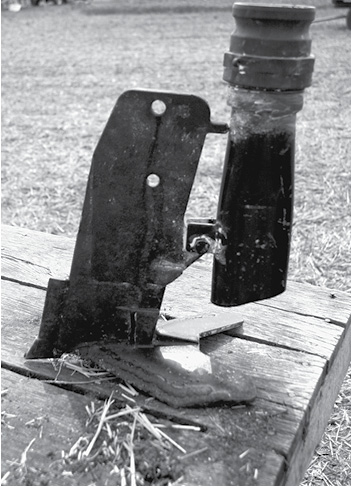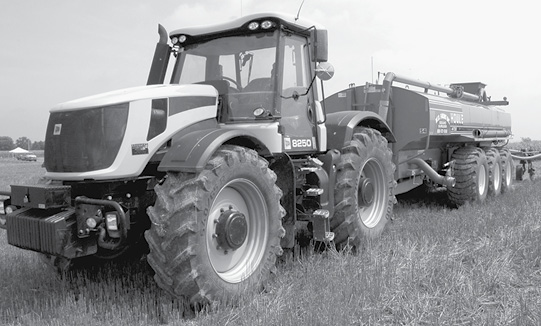When it comes to trimming fertilizer costs with low-cost nutrients from manure, most concerns center around timing and compaction issues, maintains Eric Debauch.
The operator of W.D. Farms, a custom manure application operation at Circleville, Ohio, says there’s plenty of money to be earned by no-tillers with proper manure application.
As an example, an application of 10,000 gallons per acre of liquid dairy manure is worth $134.70. An application of 6,000 gallons per acre of swine manure is worth $277.80, while an application of 10 wet tons of beef manure can earn $102.70 per acre. (See charts on Page 5 for details.)
In determining costs, Debauch suggests that no-tillers budget $3.50 to $4 per ton for the application of manure.
Right Equipment Counts

Debauch’s equipment can place anywhere from 5,000 to 10,000 gallons per acre in a knifed-in slot. While offering several manure spreading options, he sees numerous advantages and disadvantages with each. His equipment includes dry spreaders, drag hoses, honey wagons that pump and spread, and semi-trucks and trailers that are used when the manure haul is more than 4 miles.
Debauch says utilizing a Dietrich manure application knife for odor control has worked well. In fact, it’s led to a sizeable amount of new business from no-tillers who want manure injected with little soil disturbance.
“This knife also fluffs the soil, which improves aeration,” he says.
Find A Partner
Having operated a liquid and dry manure custom application business for more than 20 years, Debauch urges no-tillers to develop profitable partnerships with area livestock producers. He lists several manure management practices as being essential for adding value with your no-tilled crops:
-
Good record-keeping.
-
Determining nutrient credits in manure for accurate fertilizer value.
-
Soil testing to pinpoint accurate fertilization needs.
-
Developing a history of the fertility value of different types of purchased manure from various livestock operations.

Debauch says the most value from utilizing available nutrients in manure depends on correct planning, proper application scheduling, solid management, having the livestock operator maintain a minimum of 1 year’s storage, offering a quality nutrient product and having a reliable delivery and application system.
“These things will ensure that a no-tiller will benefit from a partnership with a livestock operation,” he says.








Post a comment
Report Abusive Comment